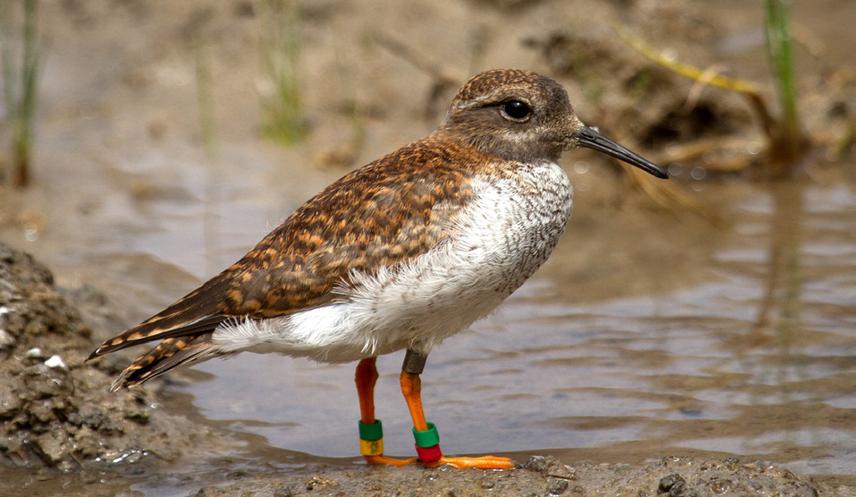Fernando Díaz Segovia
Other projects
27 Jan 2015
Diademed Sandpiper-Plover (Phegornis mitchellii) Conservation and Research of a Rare Andean Shorebird in Central Chile II
This study will provide the first detailed description of the breeding ecology and demography of one of the world’s rarest and least-studied shorebirds, Phegornis mitchellii. Results will be used to develop effective conservation strategies to sustain Phegornis mitchellii in Central Chile and will provide tools to assess the species’ status in their entire range.

Phegornis mitchellii is one of the rarest and least-studied of the world’s shorebirds. This study will provide the first detailed description of the species’ breeding ecology and demography. The creation of a detailed habitat classification will provide a more comprehensive understanding of the species’ habitat affinities and will enable researchers to more accurately predict the potential occurrence of the species at other locations in west-central South America. Obtaining this information is crucial for understanding the population characteristics and persistence of the species in central Chile in the face of changing environmental conditions and increasing anthropogenic pressures.
Because Phegornis mitchellii is one of the most iconic species associated with Andean wetlands, it is an ideal flagship species to target conservation measures for wetlands used by other bird species. Understanding the response of Phegornis mitchellii to the immediate effects of anthropogenic activities, such as grazing, and to future effects of a changing climate are critical for developing effective conservation strategies for wetland-dependent species.
Combined with a rigorous research program, our study will initiate a citizen science and outreach program that connects a diverse group of landowners, resource managers, students, tourists, and the general public. We will provide field research training and educational opportunities in our study area, and work with local landowners to increase conservation efforts on their properties. Outreach including presentations and publications will help heighten awareness of the status of the species across its range.
Results of this study will be critical in developing effective conservation strategies to sustain Phegornis mitchellii in central Chile and will provide tools to assess their status in other areas of Chile, and their entire range. Involving volunteers and citizen scientists from Santiago and elsewhere in Chile will increase local capacity to accomplish conservation for a variety of birds, mammals, and other components of biodiversity. Our vision for creating and implementing an effective conservation program for Phegornis mitchellii and the habitats they use include a long-term and large-scale approach.